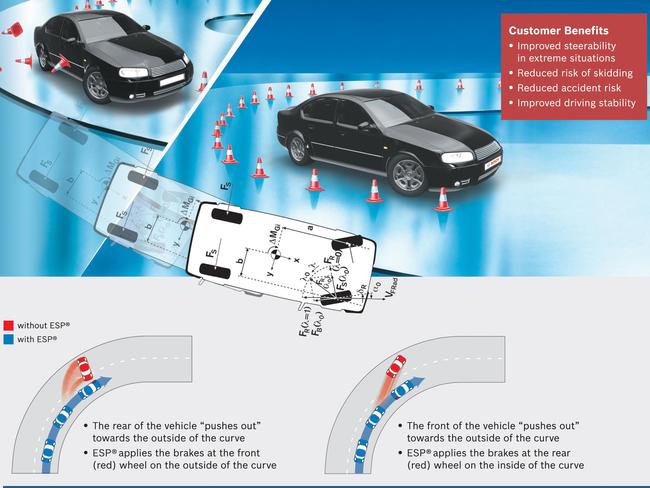Mercedes-Benz recall over 1000 C63 models for ESP problem
Mercedes-Benz were the first to sell a car with this now standard technology, but a simple mistake has forced a recall of its models.
Car Advice
Don't miss out on the headlines from Car Advice. Followed categories will be added to My News.
Mercedes-Benz has recalled more than a thousand late model sedans and SUV models due to a programming issue that could increase the risk of crashes.
Software for the electronic stability program (ESP) on the 1140 affected C63, C63s, GT63s and GLC63 models from 2018 – 2020 was programmed for the wrong brakes.

RELATED: Uber’s ‘waste’ of $3.5 billion
RELATED: Debate rages over ‘entitled’ driver
According to Product Safety Australia the software may be “incorrectly programmed for the type of brake in the vehicle”.
“Incorrect programming could lead to an inappropriate ESP intervention in some driving situations, increasing the risk of a crash or injuries and death of vehicle occupants and other road users.”
Mercedes was the first to sell a car with an electronic stability control system, installing it in the S600 coupe from 1995.
RELATED: ‘Alexa, I’m being pulled over’

As is often the case, the feature trickled down from the luxe of luxe to more attainable models over time, and has been a mandatory feature on new cars in Australia since 2013.
It works by using software and sensors to detect when your car is losing traction as it accelerates, and automatically applies the brakes to individual wheels or limits engine power to get your car back on the right track.

If you have one of the affected Mercedes-Benz models (you can check your car’s VIN against this list) then contact your local service centre or dealership, where they’re supposed to fix it for free.
Last month Mercedes-Benz recalled more than 6000 X-class utes due to an issue that could cause power steering to fail.
Originally published as Mercedes-Benz recall over 1000 C63 models for ESP problem
